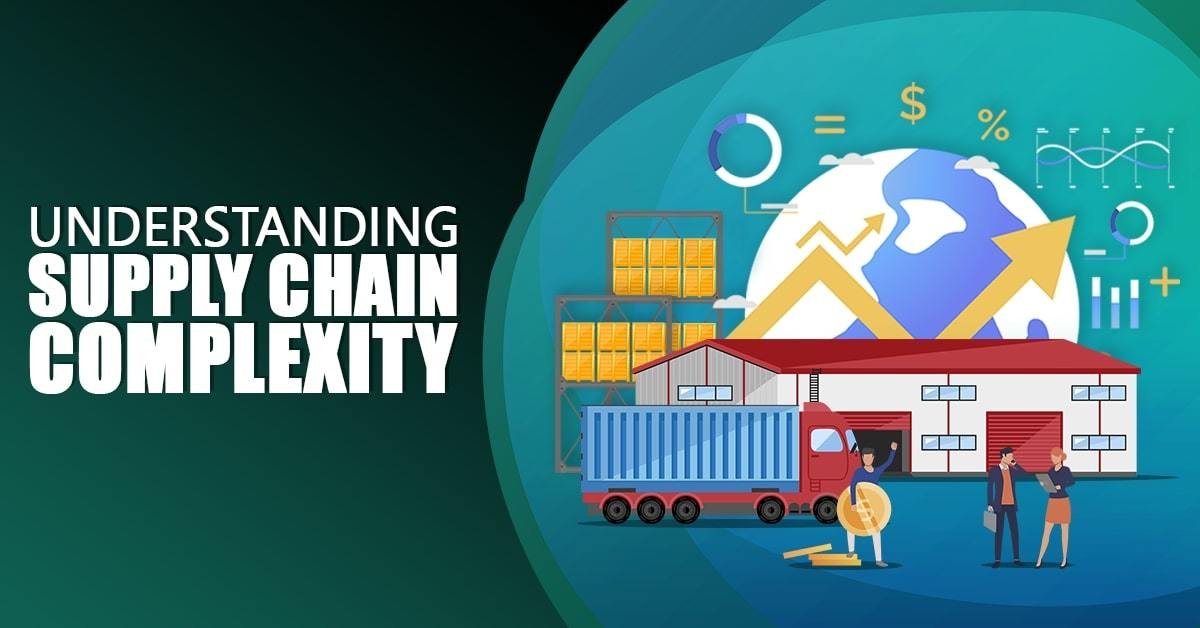Reducing Complexity in Global Supply Chains

Blue Ocean Academy conducted a free webinar on the topic of "Reducing Complexity in Global Supply Chains". Michael Proffitt, the former CEO of Dubai Logistics City (DLC) and a member of the Management Board of Dubai World Central (DWC), facilitated this seminar. With extensive experience in the field of supply chain management, he was the visionary behind Dubai Logistics City (DLC), the world’s first multi-modal integrated logistics platform.
Around 140 participants from across the world attended the webinar. We have received great feedback from the participants for the informative and insightful webinar. Important points discussed in the webinar are the following:
Supply chain management has become more challenging in the current situation. Organizations are trying hard to continue their operations amid the risks posed by their global supply chains. COVID-19 has exposed some unexpected risks in the global supply chains that adversely affected the operations of many organizations resulting in a huge drop in sales and even temporary or permanent closure.
Develop an efficient supply chain strategy
Organizations have to come up with an efficient supply chain strategy to overcome these challenges and mitigate the risks. It is not possible to build a strategy and follow it forever. The supply chain strategy needs to be changed according to economic and market conditions. Companies of all sizes must re-evaluate their supply chain strategies. Agility is a key feature of supply chains that protect them from unprecedented risks. This pandemic has helped us understand the importance of predicting what can go wrong in our business and act accordingly.
Simulation techniques can be used to evaluate supply chain networks and prepare flawless plans against disruptive events. Network structure, network policy optimization, customer service levels and financial impact are the important factors that have to be taken into consideration while implementing simulation techniques.
Organizations must rethink their channel partners. An excellently managed supply chain should have the supply chain networks located in the right places, consistent flow of goods, satisfied customers, efficient flow of information, and stable cash flow. In order to attain this, supply chain excellence must be the agenda of all the channel partners.
Outsourcing is another aspect that has to be considered while discussing the complexity of supply chains. Many companies tend to outsource reducing the cost of production while ignoring the other costs involved. Total cost of ownership is crucial in outsourcing as it can adversely affect the profit. Companies should focus on low-cost sourcing by assessing current sourcing strategies, methods, and expenditure. The ideal strategy is to choose the best cost country sourcing instead of the lowest cost country sourcing.
Global Supply Chain Risks
Businesses around the world have realized the importance of considering pandemic as a major risk that can turn all your plans upside down. We need to protect the supply chain against disruptions due to:
- Pandemics
- Natural disasters
- Terrorist events
- Supply chain mistakes
- Port, terminal and rail/truck service disruptions
Benefits of onshoring
Onshoring is basically outsourcing to another city in your country. By using this approach, companies don’t face the risks associated with offshoring like cultural differences or foreign taxing policies. Considering the complexity, costs and risks involved in the global supply chains, onshoring is a flexible and beneficial option. Debates and discussions on onshoring have increased considerably after COVID-19. The following are the main benefits of onshoring:
- Quicker response to trends
- Shorter supply chains
- Reduction in inventory
- Reduction in obsolescence
- Reduced currency risk
- Favorable consumer reaction
At present, the main concern of the businesses is to overcome the existing challenges and move on. But from a future perspective, we need to re-evaluate all our strategies and build an agile and transparent supply chain that can survive a major disruption like COVID-19.
